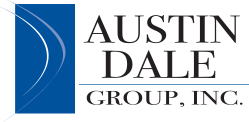04 Apr M&A Trends for Healthcare Software and Technology Companies
Healthcare technology companies, including software, SaaS, and others, continue to be in high demand. Acquisitions and consolidations are being driven by significant technological, regulatory, and social changes. Strategic buyers and private equity firms, with huge amounts of cash to invest, are actively looking for deals.
Healthcare tech M&A transactions hit an all-time high deal value of $11.9 billion in 2018 (103 transactions), an increase of 80% in deal value over 2017 (95 transactions). The aggregate numbers and deal multiples are driven up by mega-deals such as the acquisitions of athenahealth and Flatiron Health. Nevertheless, owners and executives of mid-market and smaller healthcare tech firms can learn important lessons by studying the M&A market.
As a key component of the overall tech sector, we analyzed 10 years of software company transaction data in DealStats. There were 191 transactions involving software companies with revenue between $2 million and $75 million. Eight of those were healthcare software companies and their revenues ranged from $4.2MM to $48.6MM.
Our analysis focuses on multiples of revenue and EBITDA. Revenue multiples are often publicly reported but we think that EBITDA multiples (Earnings Before Interest, Taxes, Depreciation, and Amortization) are more meaningful in analyzing transaction data.
In the table below, we show low and high revenue and EBITDA multiples, and harmonic means. We like to use harmonic mean because it reduces the effect of outlier data points (extra low or high numbers).
| Revenue
Valuation Multiple |
EBITDA
Valuation Multiple |
|||||
| SOFTWARE Industry | Low | High | Harmonic Mean | Low | High | Harmonic Mean |
| Software – all companies | 0.2 | 36.6 | 1.8 | 2.6 | 251.3 | 13.8 |
| Software – healthcare only | 1.4 | 18.4 | 3.2 | 10.7 | 65.2 | 25.0 |
Data from DealStats – companies with revenue from $2MM to $75MM, transactions completed from 2009 to 2019.
As expected, software companies were highly valued with an EBITDA multiple of 13.8X. Healthcare software companies, with a 25X EBITDA multiple, have an 81% premium over other software companies in their size range.
When there is consolidation and large transactions in a given vertical market, there is generally a wave of additional M&A in the middle market as companies pursue add-on opportunities to round out their capabilities and fulfill their strategies. The healthcare sector is undergoing a massive shift as legacy processes and systems are replaced by innovative new systems that help reduce costs and deliver better quality services.
We receive inquiries every week from companies that are seeking targets in this market. That includes companies with solutions in revenue cycle management, medical records technology (EMR/EHR), mobile health solutions, and many others. This may be an ideal time for companies with innovative healthcare solutions to explore being acquired or raising capital. We are probably near a peak in the current economic cycle, and the M&A market, which runs in approximate 5-year cycles, is expected to cool off by next year.
Contact us if you want to explore your options or you have been approached by a potential buyer, or if you just want to talk about the current M&A market and your company’s readiness for a transaction.
About Austin Dale Group
Austin Dale Group is a tech M&A firm in Austin, TX, and our clients include software companies, cloud solution providers, and IT managed services – as well as healthcare and other tech-enabled businesses. We specialize in M&A and strategic growth advisory services for middle-market technology businesses with revenues up to $75 million. We help our clients prepare for a merger or acquisition, build shareholder value, and sell their business (or divest a division). We also work with companies that wish to acquire other companies as part of their growth strategy.






